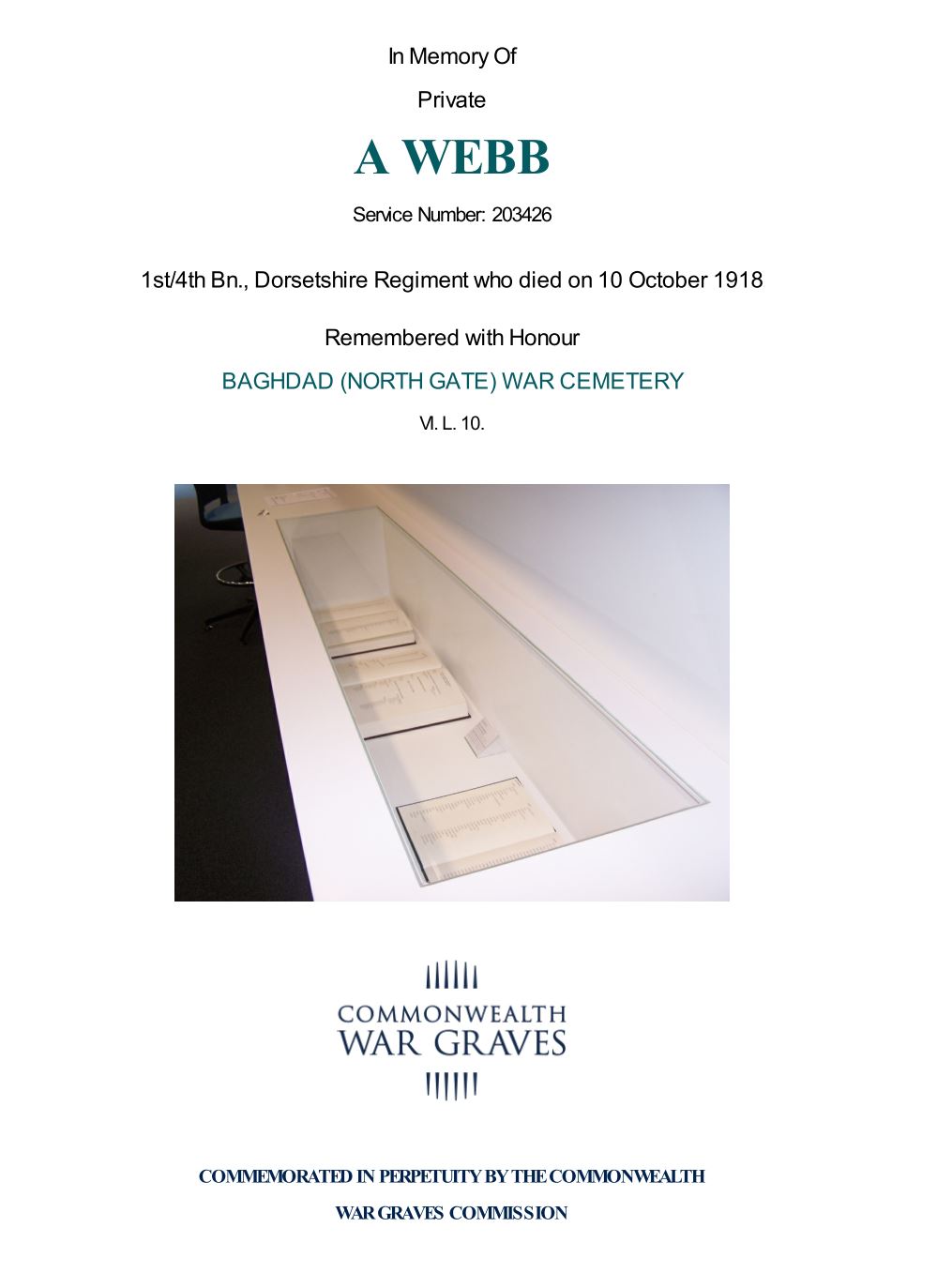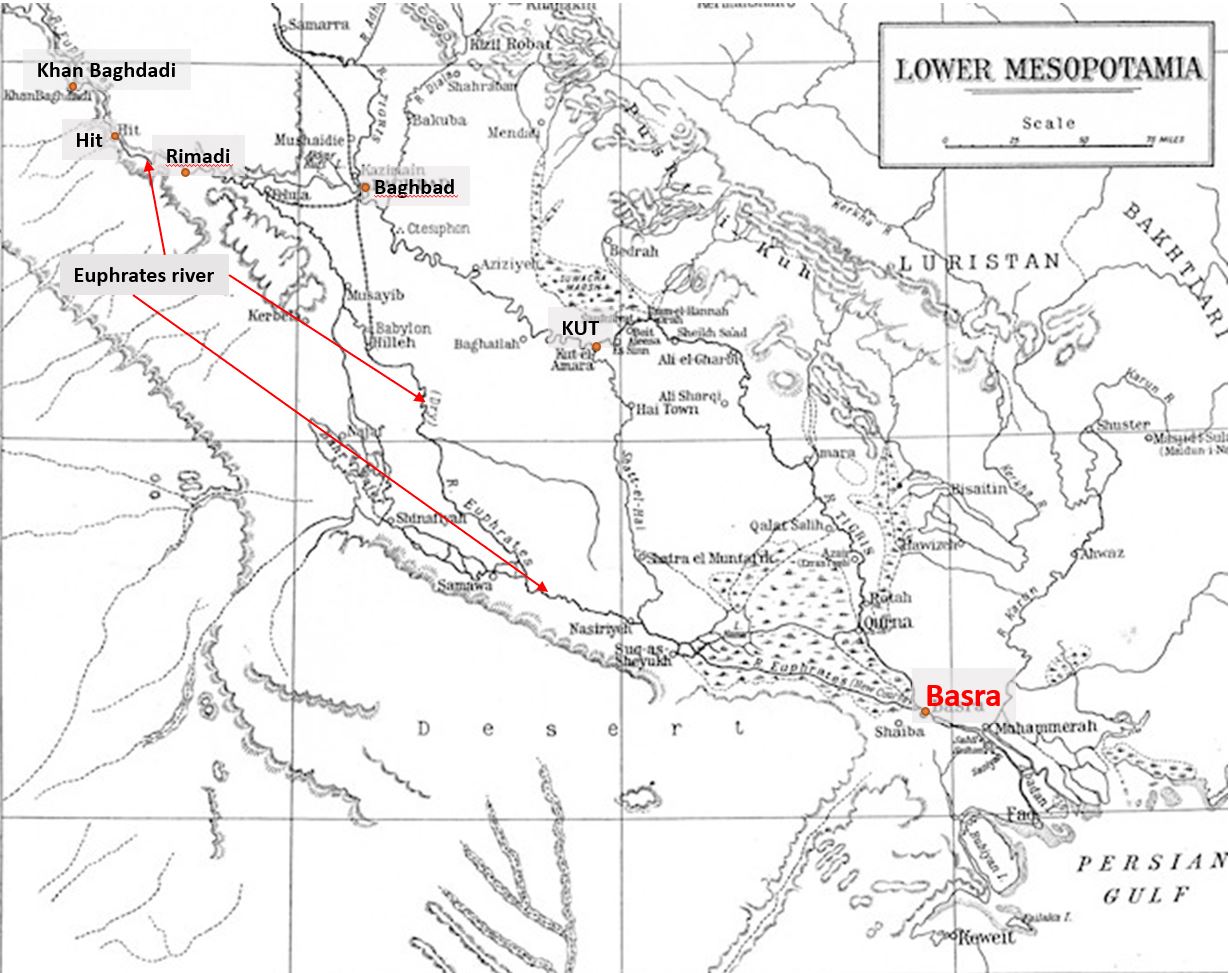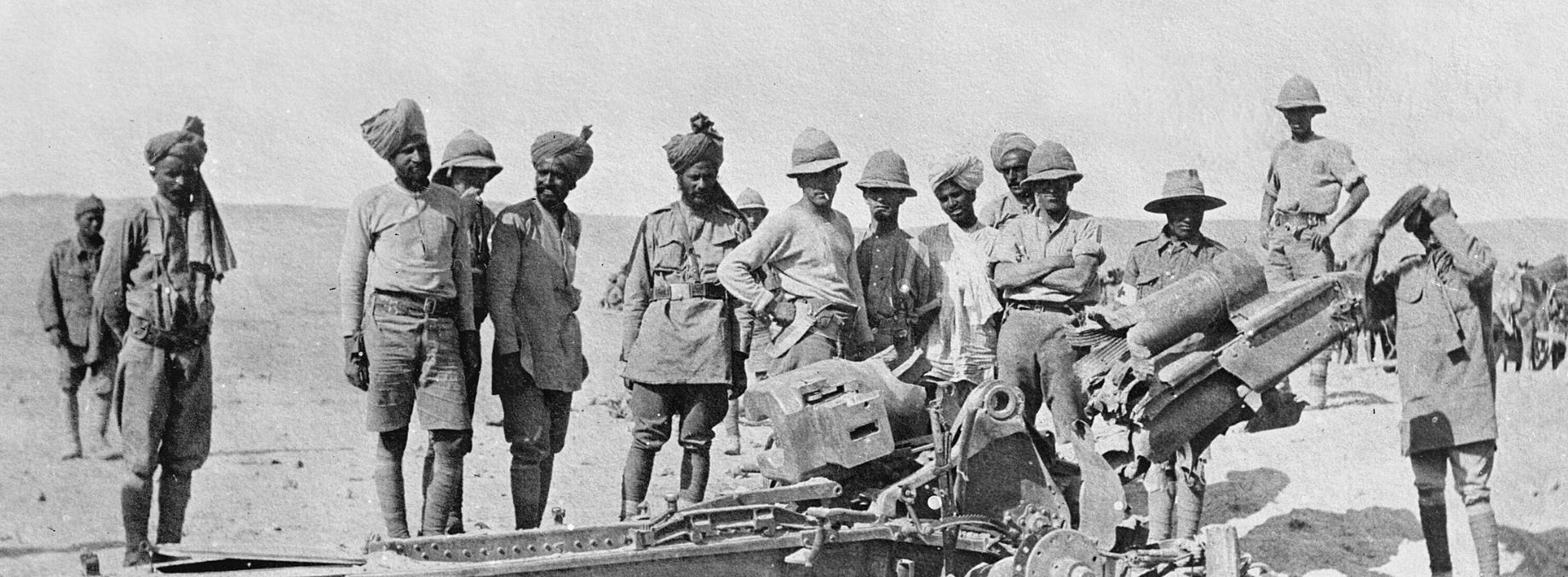
We do not know much about Alfred Webb. The inscription on the gravestone in St Giles Hill Graveyard merely states that he died in Mesopotamia on 5th October 1918 at the age of 31 years (carved in the stone surround).
A search of the CWGC website reveals an Alfred Webb who died in Mesopotamia on 10th October 1918. He is buried in Baghdad (north gate) war cemetery. No address or next of kin are given.
The book “Debt of Honour (Winchester City’s First World War Dead)”, by Jen Best, states “Webb, Alfred, private, 203426, 1/4th Bn the Dorsetshire Regiment., died 10 October 1918 age unknown.” The book gives his address in Winchester as 33 St John Terrace.
Some clues as to his family can be gleaned from the gravestone where he is remembered. “In memory of our dear mother Emily Oliver who fell asleep March 8 1909 aged 47, also of Charles Oliver who died Feb 24th, 1930 aged 80”.
A 39 year old Emily Oliver is recorded as living at 33 St Johns Hill Winnall in the 1901 census. She is married to a general labourer William Oliver. Her death is recorded as March 1909 (as on the headstone). In the 1911 census William Oliver, widower, is recorded as living at 32 & 33 St Johns Terrace, Winchester with 5 family members, one daughter (Alice Oliver aged 27), and 4 sons. This gives the clue as to why Alfred is remembered on the stone surround. Alfred Webb appears to have married Alice L Oliver in Winchester somewhere between April and June 1913.
Alfred’s war:
Between 1914 and 1918, British and Indian troops fought against the Ottoman Turks in Mesopotamia (now Iraq). The British army was met by a surprisingly resistant Turkish army in addition to server conditions including extreme temperatures in arid desert, flash flooding, and mosquitoes, medical arrangements were bad. This led to high levels of sickness and death through disease rather than fighting.

The 1/4th Bn the Dorsetshire Regiment was stationed in Dorchester and moved to Salisbury pain in August 1914. On the 9 October 1914, they sailed from Southampton for India, landing in Bombay on the 10th of November 1914. After a period of time in India, they were transferred to the 42nd Brigade in February 1916 and embarked for Basra from Karachi. This was presumably as part of the reinforcements to relieve KUT which was besieged by the Turkish forces. The Kut troops surrendered on 29th April.
In May 1916 the 42nd brigade was transferred to the 15th Indian Division and was involved in actions at Sahilan and the Capture of Ramadi in September 1917. In March 1918 they were at the occupation of Hit and the Action of Khan Baghdadi. All of these battles were along the Euphrates river.

British and Indian troops examining a Turkish 5.9-inch artillery gun wrecked by a premature burst. 1917.
As armistice negotiations began, the British attempted to strengthen their bargaining position by renewing their advance. They defeated the Turkish 6th Army at the Battle of Sharqat (23-30 October 1918) a week before the signing of the Armistice of Mudros, which ended the war. Although the armistice said both sides were supposed to retain their current positions, the British pushed on to secure oil-rich Mosul on 14 November 1918.
It is not known if Alfred Webb participated in any actions during October 1918 when he died. It is probable that he died of illness rather than injury through fighting.
Don’t hesitate to get in touch with Dave Stewart Email dave@stgileshill.org.uk if you have any questions, corrections or additional information that could be added to this page.